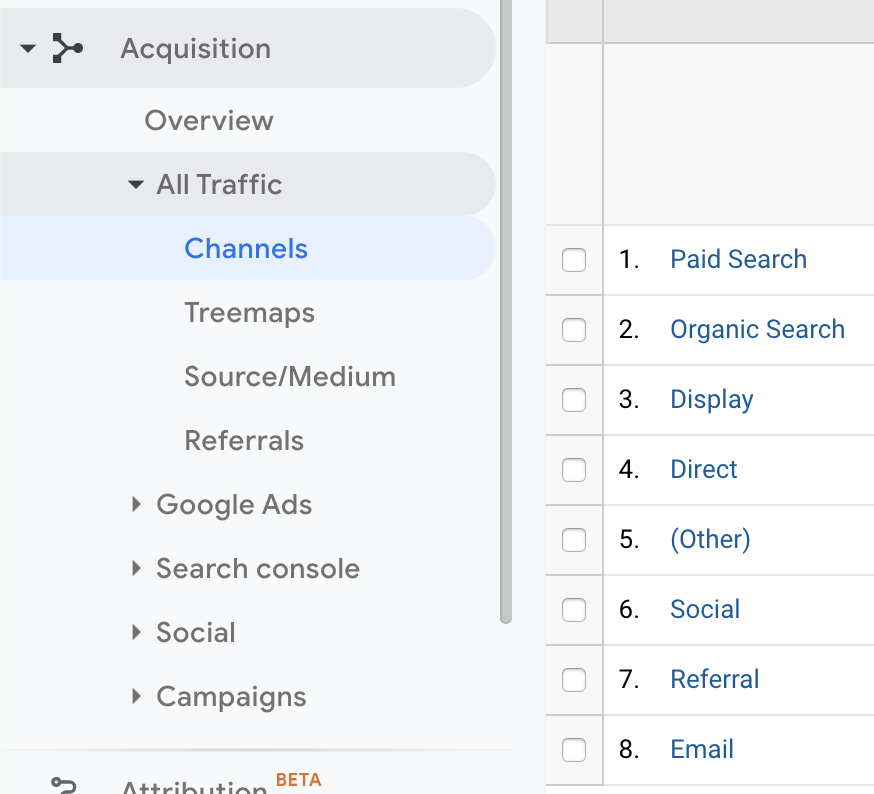This question has two parts: best practice, and issues with reporting.
Best practice:
Right now, the UTMs that we've set up for our Facebook & Instagram advertising campaigns are dynamically generated.
Option A
We're currently using the following set up in the Facebook Ads Manager:
?utm_source={{site_source_name}}
&utm_medium={{placement}}
&utm_campaign={{campaign.name}}_{{adset.name}}
&utm_content={{ad.name}}
Option B
We've also considered splitting out the adset name into a separate URL parameter:
?utm_source={{site_source_name}}
&utm_medium={{placement}}
&utm_campaign={{campaign.name}}
&utm_term={{adset.name}}
&utm_content={{ad.name}}
However, I'm not sure if the content and term parameters are the best fit for this?
Question 1: Which one of the above is best practice?
Issues with reporting:
With either setup, this means that in the Acquision > All Traffic > Channels report in Google Analytics, everything gets lumped under (Other):
Only therein you'll have fb and ig — separated away from other paid channels. That doesn't seem right. Facebook's help page on this didn't provide complete clarity on the matter.
Question 2: Is this set up right? Or is there a better way of using Facebook's dynamic parameters to set up UTMs according to Google's guidelines?
ad_id={{ad.id}}
adset_id={{adset.id}}
campaign_id={{campaign.id}}
ad_name={{ad.name}}
adset_name={{adset.name}}
campaign_name={{campaign.name}}
placement={{placement}}
site_source_name={{site_source_name}}

